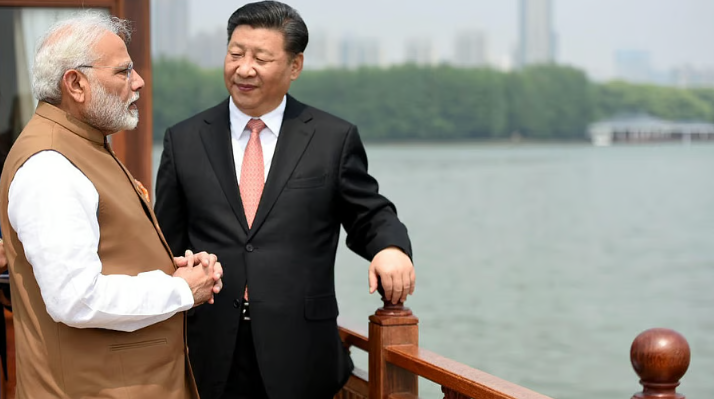Though China purportedly decided to fast-track the supply of J-35A stealth fighter jets to Pakistan in the wake of India’s “Operation Sindoor” targeting terrorist camps in Pakistan as well as in the areas illegally occupied by Pakistan, New Delhi is not keen to disturb its détente with Beijing.

Prime Minister Narendra Modi and Chinese President Xi Jinping are likely to meet at Rio de Janeiro in early July, with New Delhi keen to continue the process of normalising its bilateral relations with Beijing, notwithstanding China’s support to Pakistan during the recent flare-up between India and its western neighbour.
Though China purportedly decided to fast-track the supply of J-35A stealth fighter jets to Pakistan in the wake of India’s “Operation Sindoor” targeting terrorist camps in Pakistan as well as in the areas illegally occupied by Pakistan, New Delhi is not keen to disturb its détente with Beijing.
Modi and Xi are expected to attend the 17th BRICS summit, which will be hosted by President Luiz Inácio Lula da Silva of Brazil on July 6 and 7. The officials of India and China are exploring the possibility of a meeting between the two leaders on the sidelines of the summit, a source in New Delhi told DH.
If the meeting happens, it will be the second between Modi and Xi, after the talks between the two leaders on the sidelines of the 16th BRICS summit at Kazan in Russia on October 23 last year marked the beginning of a process to normalise the relations after more than four years that saw India-China relations hit a new low over the military stand-off along the Line of Actual Control in eastern Ladakh.
New Delhi has taken note of Beijing’s support to Islamabad after tension escalated between India and Pakistan in the wake of the April 22 killing of 26 people, mostly tourists, at Baisaran near Pahalgam in Jammu and Kashmir.
Even before India launched ‘Operation Sindoor’ targeting terrorist infrastructure in Pakistan as well as areas under illegal occupation of Pakistan, China vowed to support its “all-weather ally” Pakistan in “safeguarding its territorial integrity and sovereignty”.
Beijing also supported Islamabad’s call for an impartial probe into the April 22 carnage in J&K, although The Resistance Force, an offshoot of Lashkar-e-Tayyiba based in Pakistan, claimed responsibility for the latest terrorist strikes in India. New Delhi, however, rejected Islamabad’s call for a neutral and international probe, terming it just a delaying tactic.
Pakistan even fired PL-15 missiles made in China at targets in India during the May 7-10 cross-border flare-up between the two South Asian neighbours.
China also purportedly provided satellite support to Pakistan to choose targets in India and to neutralise India’s counterattacks.
India’s air defence systems, however, intercepted the missiles fired by the Pakistani Army.
New Delhi sent out a message to Beijing, with the spokesperson of the Ministry of External Affairs (MEA), Randhir Jaiswal, recently stating that “mutual trust, mutual respect and mutual sensitivity” remained the basis of India-China relations.
A few days after New Delhi and Islamabad agreed to halt the four-day-long cross-border military offensives and counter-offensives on May 10, Chinese Foreign Minister Wang Yi hosted his Pakistani counterpart, Ishaq Dar, in Beijing.







